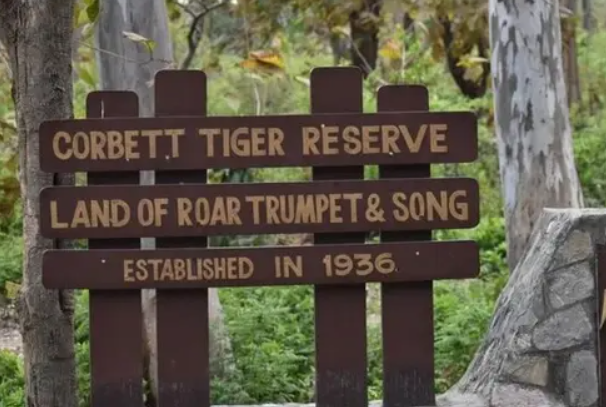Supreme Court Bans Tiger Safari in Core Areas of Jim Corbett National Park
On March 6, 2024, the Supreme Court of India reprimanded the Uttarakhand government for its involvement in the felling of trees and unauthorized construction activities within the Jim Corbett National Park. The apex court imposed a ban on tiger safaris in the core areas of the park, allowing them only in the peripheral and buffer zones.
Committee to Evaluate Tiger Safaris in National Parks
The Supreme Court directed the formation of a committee to investigate whether tiger safaris can be permitted in buffer or fringe areas of national parks across the country. The committee will also propose measures to alleviate the environmental damage caused and seek reimbursement from those responsible.
Petition and Court’s Stance
The bench, comprising Justice BR Gavai, Justice PK Mishra, and Justice Sandeep Mehta, was presiding over a petition filed by environmental activist and lawyer Gaurav Bansal. Bansal contested the Uttarakhand government’s plans to establish a tiger safari and a zoo with captive animals within the boundaries of the national park. The court highlighted the detrimental impact of establishing a tiger safari in the core area and emphasized the necessity of adhering to established guidelines for wildlife conservation.
The Supreme Court strongly criticized former Uttarakhand Forest Minister Harak Singh Rawat and former divisional forest officer Kishan Chand for engaging in illegal construction activities and unauthorized tree felling within the Corbett Tiger Reserve. The bench stated that the officials had thrown public trust doctrine in the waste bin and indulged in mass felling of trees for commercial purposes under the pretext of promoting tourism.
Status Report and CBI Investigation
The apex court has asked for a status report on illegal construction and felling of trees in the Corbett Tiger Reserve within three months. The Enforcement Directorate had previously raided the residences of Rawat and Chand in connection with the illegal construction activities.
Earlier Stance on Tiger Safaris
In January 2024, the Supreme Court had dismissed the National Tiger Conservation Authority’s (NTCA) proposal to establish tiger safaris within national parks, emphasizing the need for an “animal-centric” approach over a “tourism-centric” one. The bench expressed concerns over the NTCA’s 2019 guidelines advocating for the creation of tiger safaris in buffer and fringe areas of tiger reserves to alleviate tourism pressure from core tiger habitats.
Prioritizing Wildlife Conservation
The Supreme Court’s stance underscores the importance of prioritizing the welfare and conservation of wildlife within national parks. The bench questioned the rationale behind establishing zoos within wildlife sanctuaries, suggesting that such facilities could obstruct the natural movement of animals and potentially spread diseases among them.
Month: Current Affairs - March, 2024
Category: Environment Current Affairs








